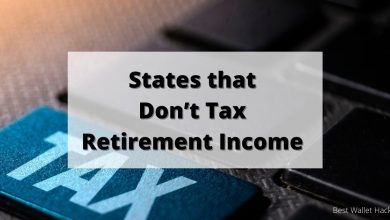Retirement Is a Lie: Warren Buffett's Exit Proves We've Been Thinking About It All Wrong

Over the weekend, Warren Buffett announced that he was going to retire at the end of this year. After 60+ years of running Berkshire Hathaway, Buffett told everyone at the annual shareholder’s meeting that he was to retire at the end of the year and that Vice Chairman Greg Abel should take his place.
Warren Buffett is 94 years old.
Like many, I’ve been a fan of Warren Buffett for decades and have read the opening pages of his annual shareholder letters for just as long. They’re fantastic because they’re written in plain English, outline his thesis often, and filled with fun little anecdotes and Buffetisms.
Through that time, I’ve already read the criticisms of him, such as how his investment style was out of touch, but it seemed he never did. And now he leaves Berkshire Hathaway in a strong financial position, nearly $350 billion in cash, and returns that easily trump the S&P 500 over his tenure.
| Annual Percentage Change in Per-Share Market Value of Berkshire |
Annual Percentage Change in S&P 500 with Dividends Included |
|
|---|---|---|
| Compounded Annual Gain – 1965 – 20024 | 19.9% | 10.4% |
| Overall Gain – 1965 – 20024 | 5,502,284% | 39,054% |
(from page 15 of the 2024 letter)
For many, retirement is a carrot that is dangled in front of your face to keep you working. Call it a myth, a lie, or any other word… but it’s to keep you doing something you don’t want to do so you can reach “retirement” when you can start doing what you want to do.
But here’s what we can learn from someone who was one of the best investors of all time and who retired when he was 94 (or at least declared his intentions to retire):
Table of Contents
When You Love It, You Don’t Need a Carrot
For all the articles you’ll read about how early retirement is great, one thing they miss is that some people don’t want to retire.
It feels good to do what you’re really good at and Warren Buffett is really good at investing!
Retirement isn’t a carrot when you love what you do.
Very few people can and want to retire in their prime. Famously, NFL great Jim Brown retired in his prime and people were shocked. There are stories as to why but ultimately he would move on from the brutal sport to pursue something he could do for much longer – acting.
In sports, the trope is that some people play too long. In a physical endeavor, and one in which they send out a legion of young athletes every year, only the exceptional performers last longer than a few years. Some stay a little too long and the toll on the body and mind is tremendous.
Given Buffett’s performance, you could argue he’s still in his prime at 94.
It’s Your Life, Do What You Want
I don’t know what Warren Buffett’s life is like privately. Yes, I’ve read he has a mistress but that his wife was OK with it until she passed. Then he married the mistress. They signed Christmas cards together, everyone seems cool with it, good for them!
It’s easy for me to assign my values to his life. I don’t want a mistress. Neither does my wife! Which are two big reasons why we don’t live this way but that’s our life, not his.
And one of the most revelatory times in your life is when you realize you are in control and should decide what you want for yourself and the people you care about. Like Neo unplugging from the Matrix.
Working until you’re 94 may not be what you want… but he seemed to enjoy it!
It’s his life and what seemed to give him the most energy was being an investor.
Being Great for Decades Offers Opportunities
Warren Buffett was so good for so long that he was given opportunities not afforded too many others. And no matter who you are, being asked to a dance feels nice.
Courtesy of Trung Phan on X, I learned that Warren Buffett was given the “opportunity” to try to save Lehman Brothers during the 2008 crisis:
Warren Buffett on the Lehman Brothers 2008 bankruptcy is the most Buffett story ever:
– He was vacationing in Alberta
– Lehman contacted his assistant for help
– Buffett said “send me a fax and how much”
– The fax never came but they left him a voicemail (he only found it one… pic.twitter.com/byTWFILlGA— Trung Phan (@TrungTPhan) April 30, 2025
There are so many great parts of this story (unless you’re Lehman) like him using a flip phone, not checking his voicemail, people looking for a fax, not getting the report and then getting it, printing it out and redlining it, follow by “We were not in a position to lend.” 🤣
In the biggest financial crisis in quite some time, imagine being asked to be the backstop. And then saying no.
Also, important to note that during this, he did back Goldman Sachs… who is still around today.
Motivation = Autonomy, Mastery & Purpose
Motivation is a funny thing – sometimes we wake up with a ton of it, sometimes we wake up with none, and it doesn’t seem to make sense as to why.
That was until I discovered this fun 11-minute talk, given and then animated by The Royal Society for the Encouragement of Arts, by Daniel Pink. In this talk, he explains the three factors that lead to better performance – autonomy, mastery, and purpose.
When I think about why I work, it matches up. It also matches up with why it seems that Warren Buffett has worked well into his nineties.
He has all three.
Now that I’m in my forties, I know a lot of people who have “retired.”
It’s one thing to retire from a stressful job or one that you hate (so the carrot is nice!), but leaving a job that you enjoy or one that gives you energy is challenging. You have to find it elsewhere.
Also, there’s something “easy” but going to work. You don’t have to figure out what you want out of your day, it’s socially acceptable to just “go to work.” It’s a transition that can be very difficult.
This is especially true if you’ve worked all your life. You went through 12 years of primary and secondary school, maybe 4+ years of higher education, then decades of work. In school, you listened to teachers, the syllabus, and followed graduation requirements. At work, you listened to your boss, followed a promotion track, and were a diligent worker.
When you finally reach that carrot, it feels good. At least for a little while. Then, you have to find your motivation to get out of bed in the morning.
When you remove all those guardrails and the dangling carrot, you’re not equipped to figure out what you want to do. It’s like rehabilitating an injured wild animal and reintroducing them back into their natural habitat, it’s not always a great situation.
So for every article you read about how early retirement is amazing, just remember that it’s not the worst thing in the world to work longer.
Especially if you’re the best at what you do, you can do it on your own terms, and you love it.
Happy trails Warren Buffett, you’re a legend.
Other Posts You May Enjoy:
How Many Jobs the Average Worker Has and What It Means For You
Pop quiz hot shot – Can you guess the median number of years that a worker (wage & salary) has…
What is the correct retirement drawdown strategy?
Retirement finances can be challenging and one of the big puzzles is how you should be drawing down your retirement assets. We explain the tax-optimal order as well as other financial considerations when you’ve retired from the workforce.
Pet Insurance and “Bad” Money Choices
Sometimes the best decision isn’t the “good” money decision and that’s OK. Life is about living in the way you want, not always following what the math says.
The Prime Directive of Personal Finance
There are many “money rules” but if you follow the “Prime Directive,” you won’t need to remember the rest.

About Jim Wang
Jim Wang is a forty-something father of four who is a frequent contributor to Forbes and Vanguard’s Blog. He has also been fortunate to have appeared in the New York Times, Baltimore Sun, Entrepreneur, and Marketplace Money.
Jim has a B.S. in Computer Science and Economics from Carnegie Mellon University, an M.S. in Information Technology – Software Engineering from Carnegie Mellon University, as well as a Masters in Business Administration from Johns Hopkins University. His approach to personal finance is that of an engineer, breaking down complex subjects into bite-sized easily understood concepts that you can use in your daily life.
One of his favorite tools (here’s my treasure chest of tools, everything I use) is Empower Personal Dashboard, which enables him to manage his finances in just 15-minutes each month. They also offer financial planning, such as a Retirement Planning Tool that can tell you if you’re on track to retire when you want. It’s free.
Opinions expressed here are the author’s alone, not those of any bank or financial institution. This content has not been reviewed, approved or otherwise endorsed by any of these entities.




